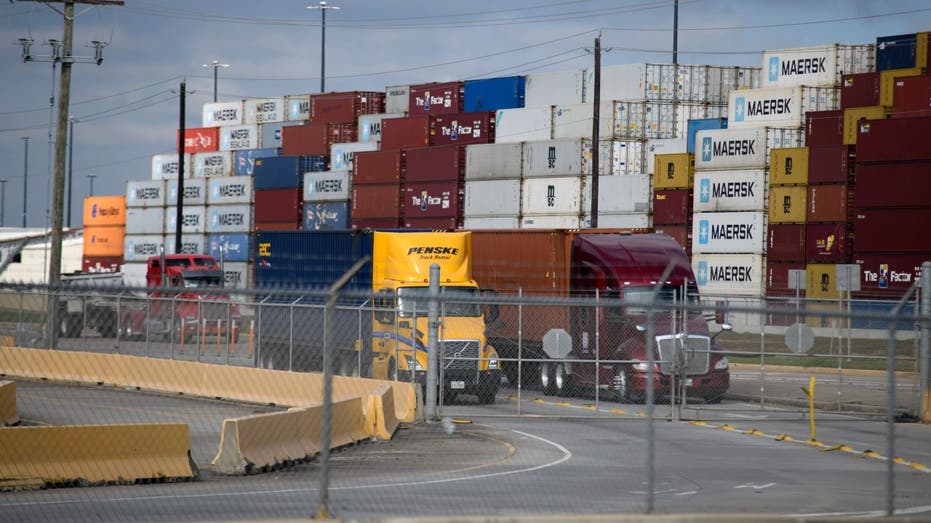President Donald Trump’s tariffs have created uncertainty over trade policy and chilled business decisions by companies in the consumer technology industry. As a result, small businesses face difficult choices, and consumers face the prospect of price hikes, an industry expert is warning.
Ed Brzytwa, vice president of international trade at the Consumer Technology Association (CTA), told FOX Business in an interview that while some firms may be able to mitigate some of the tariff costs, others will be forced to raise prices for consumers — if they can afford the cost of the tariffs.
“Every company is going to have to make their own choices on how they deal with this. There are going to be some companies that have more ability because of their scale to spread the cost throughout their businesses, and they might have to pass those costs on through their supply chain,” Brzytwa said.
“I think for the small businesses, it’s much more difficult to do that because they may not have the resources at the moment to even pay the tariffs,” he explained, noting about 80% of CTA’s 1,200 member companies are small businesses and startups. “If they do pay the tariffs, they’re going to need to get paid back by their customers. And, so, if they raise their prices too much, they might not even have a market for the product because the tariff rates are so prohibitively high.”
HOW TRUMP’S TARIFFS COULD IMPACT THE LABOR MARKET
Brzytwa said, based on an analysis he’s seen, the 145% tariffs on imported goods from China are “so high that it will not lead to any new revenue. It will just block products from coming into the country” as firms opt against paying the tariff to import the goods and trade volumes decline between the two countries.
“What that means for products in the United States, at least in the short- to mid-term if there’s no substitution, is that there’s going to be more scarcity of products, and that’s going to lead to higher prices,” he explained. “That’s just basic economics. If you create scarcity, there’s going to be more demand for the remaining products that are left over, and prices are going to go up. It’s not a company decision at that point. That’s just a demand response.”
TRUMP ADMIN MOVES TOWARD SEMICONDUCTOR, PHARMACEUTICAL TARIFFS

Brzytwa said some companies are struggling to find new locations to manufacture their products to avoid the prohibitively high tariff cost, adding it’s not economical for them to make those goods in the U.S. at the same price levels American consumers are accustomed to. That decision is complicated by the “reciprocal” tariffs that are temporarily 10% but will rise to individualized rates for most countries once the 90-day pause ends.
“The United States manufacturing environment doesn’t support the ability of companies to make really innovative consumer technology products at affordable prices. These companies are going to go to places like Vietnam or Taiwan or Thailand or elsewhere,” he explained. “But if the threat of these reciprocal tariffs still persists, every decision they make is going to be undermined because at some point that tariff could come back.”
BILLIONAIRE HEDGE FUND MANAGER WARNS TARIFFS COULD TRIGGER CONDITIONS ‘WORSE THAN A RECESSION’
To help provide more certainty for businesses in the consumer technology industry, Brzytwa said CTA is “advocating for long-lasting, durable, binding, enforceable trade agreements between the United States and our allies.”
He noted that the Trump administration’s trade talks are important but that it isn’t clear what goals the White House has. Does it want to negotiate a bigger trade deal with Japan or strengthen the trade agreement with South Korea? He added a new free trade agreement with Vietnam would be “very dynamic and important for the U.S. economy because Vietnam is an alternative to China,” while a trade deal with India would serve similar purposes.
“You have to create the right conditions and environment for successful negotiation,” Brzytwa explained. “If these tariffs are just persisting, it’s a aword of Damocles over the heads of these countries, and they may not be willing to negotiate if they know they’re going to get hit with a tariff later despite negotiating an agreement with the administration.”
BIG BANK CEOS WEIGH IN ON TRUMP’S TARIFFS: ‘CONSIDERABLE TURBULENCE’
Brzytwa said the spillover effects of tariffs could create a “contagion” that weakens other economies, which have also seen elevated levels of stock market turbulence.
“The administration should be mindful that harming countries around the world through U.S. policy choices is not in the best interest of the global economy,” he said.
Last week, the Trump administration signaled it would create a tariff exemption for some consumer tech products like laptops and smartphones. Commerce Secretary Howard Lutnick later said the exemptions would be short-term in nature, while President Trump subsequently said those tariffs are “just moving to a different bucket” and called reports about an exemption false.
“The Trump administration’s decision to exclude certain consumer tech products from tariffs is long-overdue recognition that these duties hurt U.S. consumers and the economy, something CTA has warned for over a year,” Gary Shapiro, CEO and vice chair of CTA, said in a statement Monday.
“The tech exclusion is not a permanent solution. Unpredictability is undermining long-term investment and growth. More, high production costs and a limited skilled workforce make domestic manufacturing of consumer tech challenging. To support U.S. innovation and competitiveness, we need a smarter, targeted trade strategy where we team up with allies to compete with China.”
Read the full article here


